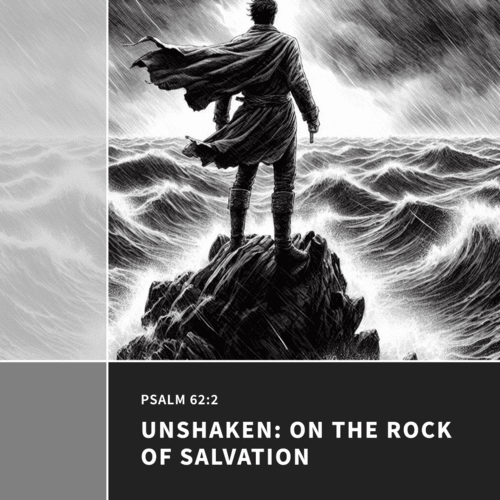The Calvinist-Arminian Debate
Exploring the Depths of God’s Sovereignty and Human Free Will
The Calvinist-Arminian Debate is one that has raged for centuries, touching on some of the deepest and most profound questions of the Christian faith. At its core, the debate grapples with the relationship between God’s sovereignty and human free will—a tension that cuts to the very heart of our understanding of salvation, predestination, and the nature of God Himself.
The Origins of the Debate: The roots of this theological controversy can be traced back to the 16th and 17th centuries, when the Protestant Reformation swept through Europe. John Calvin, the influential French theologian and reformer, articulated a doctrinal system that emphasized the absolute sovereignty of God and the complete depravity of humankind. He upheld the idea that God, in His infinite wisdom and sovereignty, predestines some individuals to salvation and others to damnation.
In response, a Dutch theologian, Jacobus Arminius began to challenge certain aspects of Calvinism, particularly the doctrine of unconditional election. He argued for a balanced view that affirmed both God’s sovereignty and human free will, maintaining God’s predestination is based on His foreknowledge of an individual’s faith or lack thereof.
The Calvinist Perspective: At the heart of Calvinism lies the doctrine of unconditional election that asserts that God, in His sovereign will, chooses certain individuals for salvation before the foundation of the world, irrespective of any foreseen merit or faith on their part. This doctrine is often summarized by the acronym TULIP:
- Total Depravity: Humankind is utterly corrupt and incapable of initiating or contributing to their own salvation.
- Unconditional Election: God’s choice of who will be saved is not based on any human merit or foreseen faith, but solely on His sovereign will.
- Limited Atonement: Christ’s atoning sacrifice was intended only for the elect, and not for all humanity.
- Irresistible Grace: Those whom God has chosen for salvation will inevitably and irresistibly be drawn to Christ, as God’s grace cannot be ultimately resisted.
- Perseverance of the Saints: Those who are truly saved will persevere in their faith until the end, as God’s grace ensures their preservation.
Calvinists argue this view exalts the sovereignty and glory of God, emphasizing salvation is entirely the work of divine grace and not human effort or merit.
The Arminian Perspective: In contrast, Arminianism affirms God’s predestination is based on His foreknowledge of an individual’s faith or lack thereof. Arminians believe God, in His infinite knowledge, foresees who will accept or reject the offer of salvation, and predestines accordingly. This view upholds the idea of human free will, suggesting individuals have the ability to either accept or reject God’s grace.
Arminians typically reject the doctrine of unconditional election, instead advocating for a more synergistic understanding of salvation, where God’s grace cooperates with human free will. They argue this view better aligns with Scripture’s emphasis on human responsibility and the universal offer of salvation.
- Challenges in the Arminian camp: While the Arminian view attempts to uphold human free will and responsibility, it faces significant challenges from a scriptural perspective. Critics argue passages like Romans 9, which speak of God’s sovereign choice in election (e.g., “So then He has mercy on whomever He wills, and He hardens whomever He wills”), directly contradict the Arminian notion that God’s predestination is based on foreseen faith. Furthermore, the Arminian position seems to undermine the biblical teaching on the depth of human depravity and inability to seek God apart from His grace (Romans 3:10-12). If salvation ultimately hinges on human free will, critics contend, it becomes a matter of human merit and effort rather than the sovereign grace of God. The Arminian view, some argue, diminishes the glory and sovereignty of God in salvation.
The Molinist Perspective: A third perspective in this debate is Molinism, named after the 16th-century Jesuit theologian Luis de Molina. Molinism attempts to reconcile God’s sovereignty with human free will by introducing the concept of “middle knowledge.” According to Molinists, God possesses not only foreknowledge of what will happen (based on His sovereign decree) and natural knowledge of what could happen (based on His understanding of cause and effect), but also “middle knowledge”—a knowledge of what free creatures would do in any given circumstance.
Molinists argue that God, in His sovereignty, uses this middle knowledge to bring about His desired ends without violating human free will. This view seeks to preserve both God’s sovereignty and human freedom, offering a unique perspective on the age-old debate.
- Challenges in the Molinist camp: While Molinism offers an intriguing attempt to reconcile divine sovereignty and human free will, it faces significant philosophical and theological hurdles. Critics argue the concept of “middle knowledge”—God’s knowledge of how free creatures would act in any given circumstance—is incoherent and raises thorny questions about the nature of free will. If God knows exactly how someone will choose in every possible scenario, can that choice truly be considered “free”? Moreover, some argue Molinism fails to fully uphold the biblical teaching on God’s meticulous sovereignty and control over all events, as it suggests God must merely “react” to the choices of free creatures rather than ordaining and decreeing all things according to His sovereign will. Molinism, these critics contend, introduces unnecessary complexity and fails to sufficiently account for the full scope of God’s sovereignty as portrayed in Scripture.
The Case for Calvinism: While the Calvinist-Arminian debate is complex and nuanced, many argue for the superiority of the Calvinist position, particularly in its faithfulness to Scripture and its exaltation of God’s sovereignty.
One of the strongest biblical arguments for Calvinism is found in passages that emphasize God’s sovereign choice and predestination: Ephesians 1:4-5 states, “He chose us in Him before the foundation of the world, that we should be holy and blameless before Him. In love He predestined us for adoption as sons through Jesus Christ, according to the purpose of His will” (ESV).
Calvinists argue this passage, and others like it, clearly teach God’s choice of who will be saved is not based on any human merit or foreseen faith, but solely on His sovereign will and purpose.
Furthermore, Calvinists point to numerous passages that highlight the depravity and inability of humankind to save themselves: Romans 3:10-12 declares, “None is righteous, no, not one; no one understands; no one seeks for God” (ESV). They contend if salvation depended on human free will or merit, no one could be saved, as all have fallen short of the glory of God.
Calvinists also emphasize the biblical teaching God is sovereign over all things, including the salvation of individuals. They argue if human free will were ultimately decisive in determining one’s eternal destiny, it would undermine God’s sovereignty and elevate human choice over divine choice.
So, sure, the Calvinist-Molinist-Arminian debate is complex and nuanced, with persuasive arguments on all three sides. The Calvinist position, however, remains a powerful and scripturally-grounded perspective that upholds the sovereignty of God and the utter dependence of humankind on divine grace for salvation.
Related Reads
Editor's Pick

What Makes a Godly Mom? A Scripture-Backed Guide
In our culture’s confusion about gender roles and parenting, the timeless question remains: what makes a godly mother? While secular [...]

Paul’s Mandate for Men: Headship Or Servant Leadership? Or Both?
Modern Christianity has fallen into a trap. We've created an either/or battle between "headship" and "servant leadership," as if these [...]

Should We Stop Using Male Pronouns for God? Why Do We Say No?
A friend of ours arrived eagerly at his first theology class in seminary. But he quickly discovered something troubling: the [...]

Did Old Testament Law Force Women to Marry their Rapists?
**Editor’s Note: This post is part of our series, ‘Satan’s Lies: Common Deceptions in the Church Today’… Viral misinformation abounds [...]

From Danvers To Nashville: Two Statements, One Biblical Vision
30 years separate the Danvers Statement on Biblical Manhood and Womanhood (1987) and the Nashville Statement on Human Sexuality (2017). [...]

The Nashville Statement: Why Affirm It Despite Media Backlash?
WHY DO REFORMED CHRISTIANS STAND BY THIS STATEMENT ON MARRIAGE AND GENDER? When the Nashville Statement was released in 2017, [...]

Who Is Belial? Solving The 2 Corinthians 6:15 Mystery
Belial: This name from the pages of Scripture chills the soul. Who is this mysterious figure Paul invokes in 2 [...]

Celibacy Or Castration: What Jesus Really Means in Matthew 19:12
One of Scripture's most shocking misinterpretations led theologian Origen to castrate himself in the third century. His tragic mistake? Taking [...]

Philippians 4:13: Did Paul Really Mean We Can Do ALL Things?
"I can do all things through Christ who strengthens me." It's on gym walls, graduation cards, and motivational posters everywhere. [...]

The Ordinary Means of Grace: Why Are They Indispensable?
ORDINARY MEANS FOR EXTRAORDINARY TRANSFORMATION What if God's most powerful work in believers' lives happens through the most ordinary activities? [...]
SUPPORT US:
Feel the Holy Spirit's gentle nudge to partner with us?
Donate Online:
Account Name: TRUTHS TO DIE FOR FOUNDATION
Account Number: 10243565459
Bank IFSC: IDFB0043391
Bank Name: IDFC FIRST BANK






